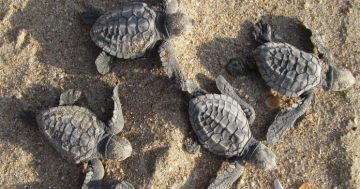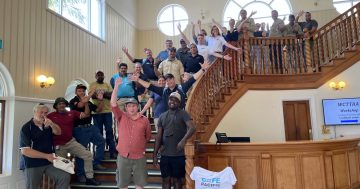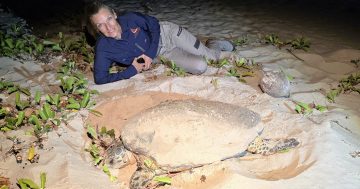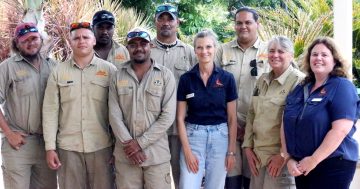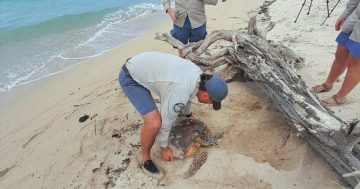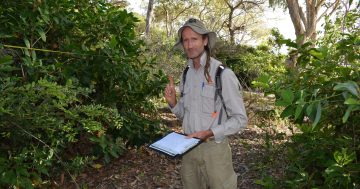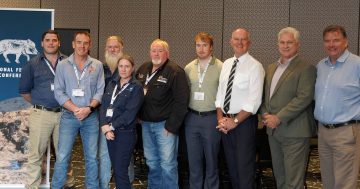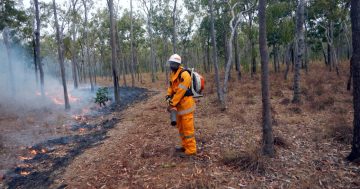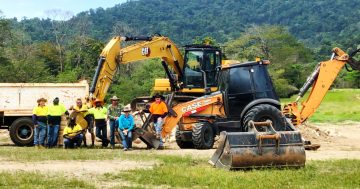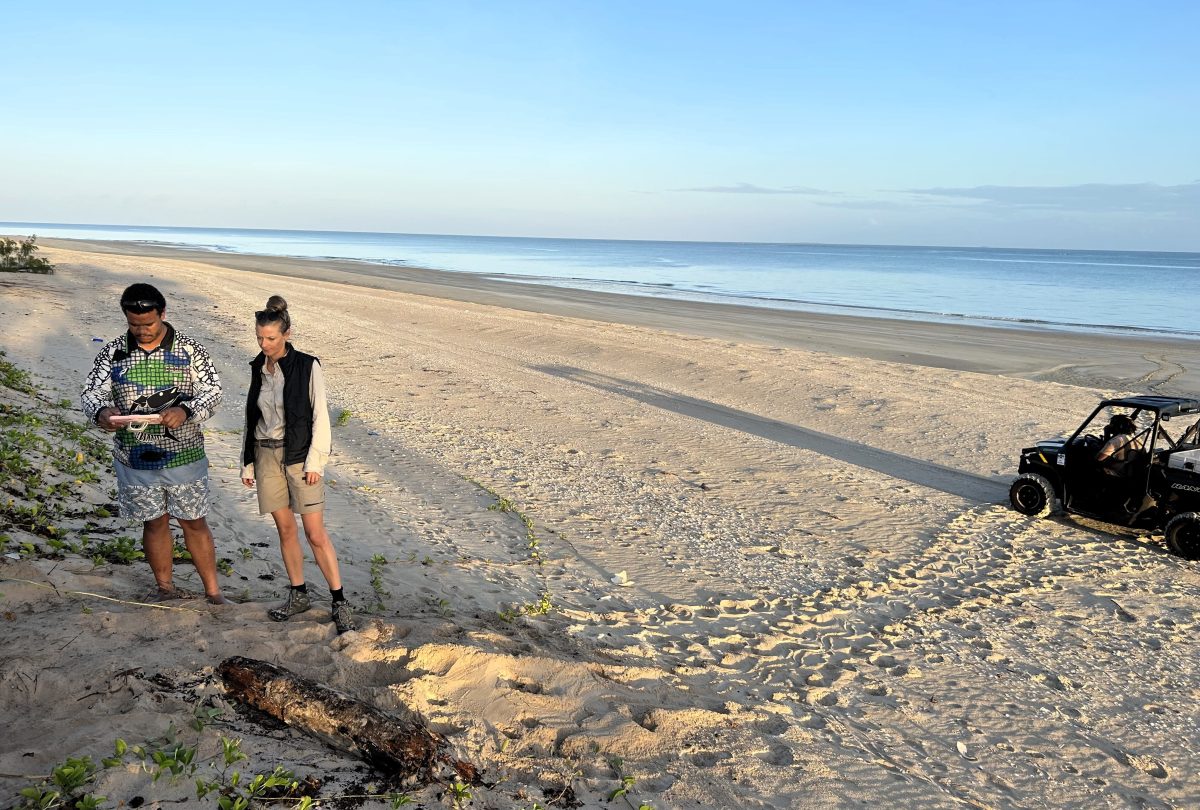
WCTTAA members are adopting new techniques in marine turtle nest protection. Photo: Cape York NRM.
The Western Cape Turtle Threat Abatement Alliance (WCTTAA) has been busy training members in nest temperature monitoring techniques, addressing growing concerns about warming sand temperatures.
Data is being collected on the NESTOR app, a marine turtle nesting data collection tool that records GPS locations of current nests with an inbuilt map.
Over several months, Cape York Natural Resource Management (NRM) WCTTAA coordinator Dr Manuela Fischer assisted in member training by Ecologistics consultant Ben Jones.
“I think a lot of the ranger groups are very happy with the new NESTOR app. It’s very user-friendly, everyone is on top of it,” Dr Fischer said.
According to Cape York NRM, research is indicating that warming sand temperatures are having an impact on the sex ratio of Olive Ridley turtles, producing more female and fewer male hatchlings.
“We’ll be collating the data and reviewing it at our annual WCTTAA forum, and ironing out any glitches (on the app),” she said.
She began the temperature logging project earlier this year at the Pennefather Beach clean-up organised by Napranum’s Nanum Wungthim Land and Sea Rangers and Tangaroa Blue Foundation.
“I deployed 10 trackers at five nests to record the heat temperature,” she said.
With the help of an interested family participating in the clean-up, she placed the trackers under the sand – one near the nest and another next to the nest for comparison.
“I have programmed the trackers to collect data every half hour for two months. That will be the trial this year, to see how the equipment works and what the temperatures are,” she said.
She explained that the chosen nests have purpose-built cages to protect the eggs from feral animals, and a shade cloth was placed over them to record any impacts to temperature.
“It’s about restoring balance,” she said.
“If the impact of the shade cloth is working, we’ll put more of these trackers into the nests closer to the eggs, along more beaches where the Olive Ridley’s nest, or we will trial another method of cooling the sand.”
WCTTAA is a partnership of six on-ground Indigenous land and sea owners and managers, which has been operating for more than 10 years with support from Cape York NRM.
Its annual turtle nest protection program covers Olive Ridley, Flatback (Natator depressus), some Hawksbill (Eretmochelys imbricata) and Green turtle (Chelonia mydas) nests.


